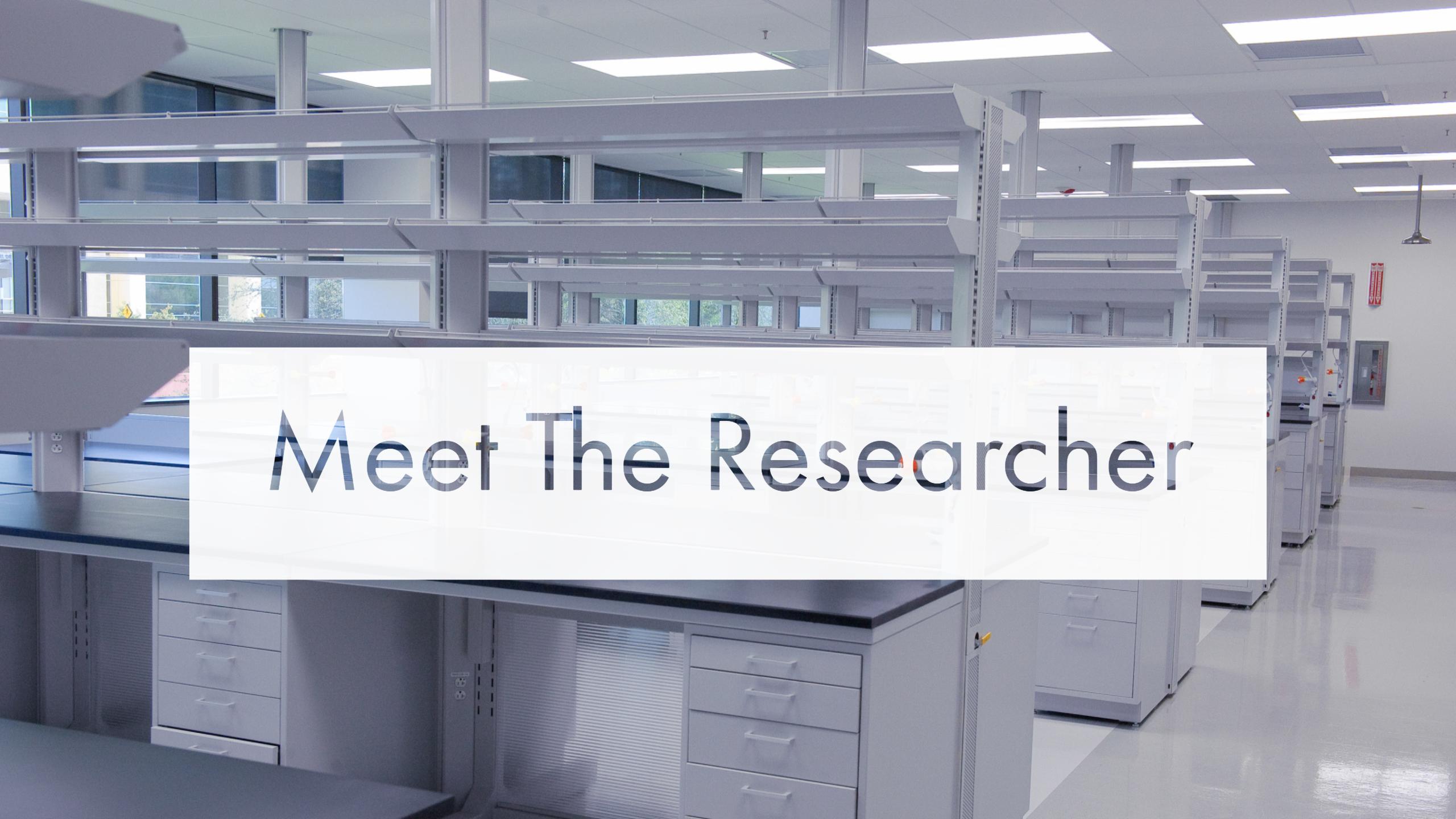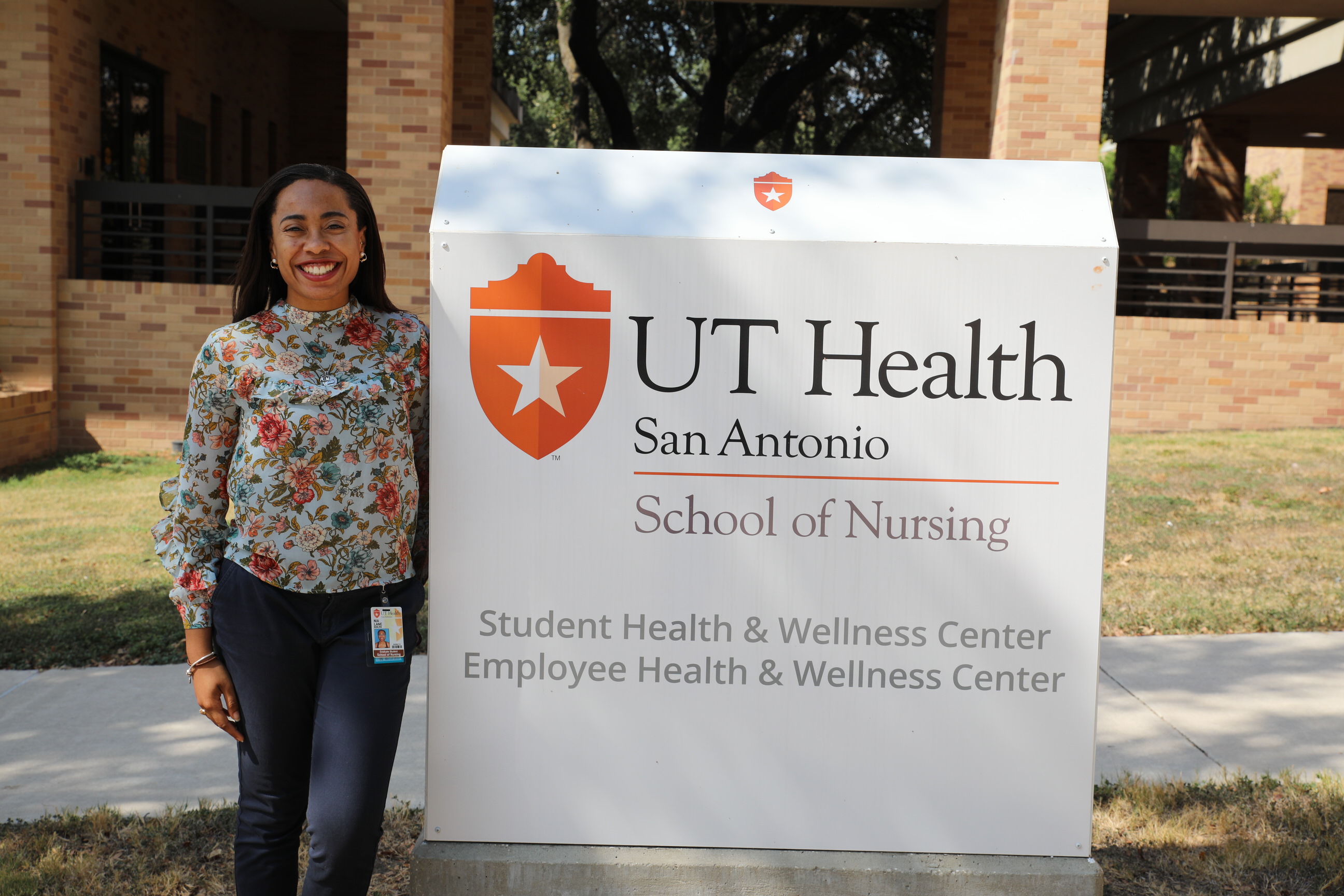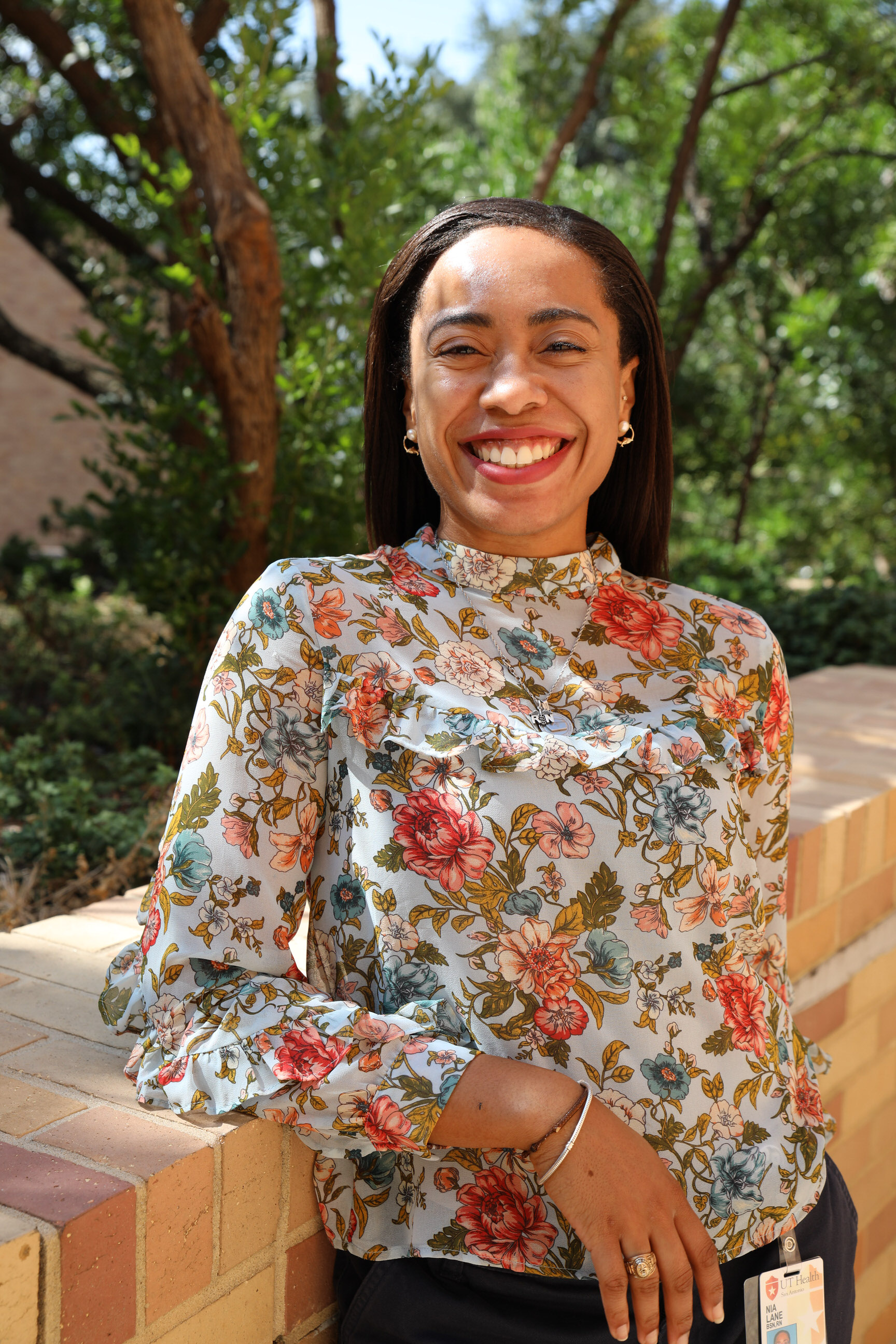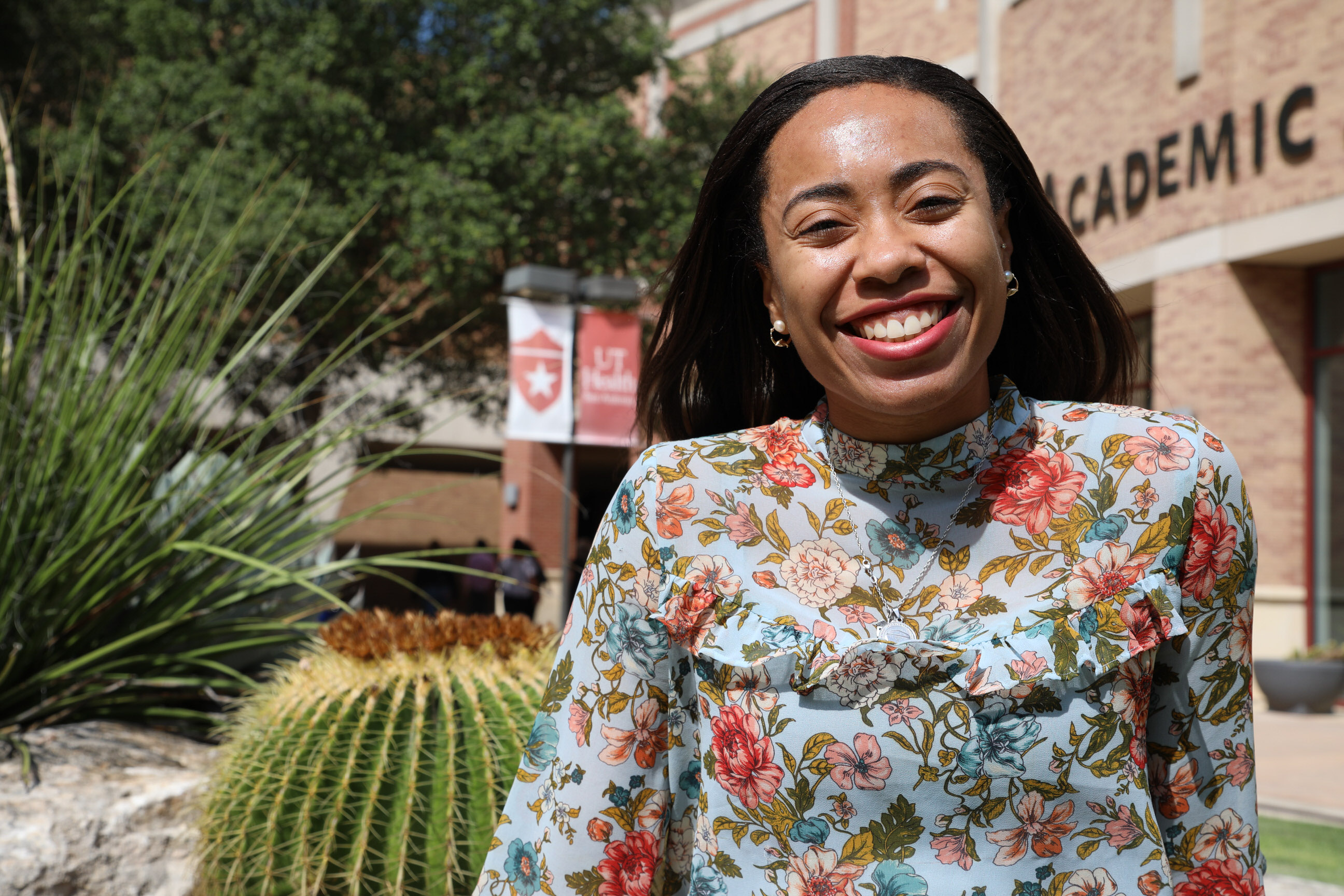Nia Reynea Lane: Focused on Community Research

Your name, program, mentor name.
My name is Nia Reynea Lane and I am enrolled in the BSN to Ph.D. in Nursing. I am in my second year.
Tell me the story of when you realized you were passionate about science.
When I was a young girl, I’ve always had an interest in science. My middle school allowed us numerous opportunities to present our research topics at science fairs. My love for science was directed towards nursing upon learning the impact and roles nurses have in health care and society. I was motivated to become a nurse because of the chance to show love and compassion towards others, and the profession closely aligns with my purpose and goals as a Christian. My goals as a nurse are to show love and compassion towards others using patient-centered care, which aligns with the wants and needs of the patient.
Please tell me about yourself, why did you pick UT Health San Antonio, and your program.
I am an only child raised by a single parent in Austin. I graduated from McCallum High School with a major in dance from our fine arts academy in 2013. I later enrolled and became an Islander at Texas A&M University-Corpus Christi. The relaxing environment in Corpus Christi allowed me to focus and obtain my bachelor’s of science in nursing in May 2017. I currently work full-time on a neuroscience medical-surgical unit at Methodist Stone Oak Hospital. We specialize in craniotomies, spine and cervical surgeries, and strokes. Six-months into working, I realized I wanted to contribute more to the Nursing profession. Soon after, I began my search for different graduate programs. At the time, I had a hard time deciding which master’s program I wanted to enroll in. To help me decide, I pondered on what skills I wanted to develop further. I then discovered the term, nurse researcher, and decided that would be the next degree I wanted to obtain. I researched different schools that offer a Ph.D. in Nursing and then found a program that allowed me to bridge my bachelor’s degree to Ph.D. After the information session, I selected UT Health San Antonio because of the in-person classes and the close connection students have with professors.

Tell me about your research. Why are you passionate about your research topic? How did you first become interested in it?
Working at the neuroscience unit, I noticed a persistent pattern in which patients are being readmitted from previous strokes. There is a high prevalence of individuals with uncontrolled and newly diagnosed hypertension. Hypertension is typically asymptomatic, and many patients are unaware of the disease until being admitted for a stroke. Individuals with consistently high blood volumes are precursors for stroke, yet there seems to be a gap in educating our communities. I want to focus on working with the community on identifying different alternatives to help individuals in the community affected by hypertension.
What do you want the public to know about your research? Why is your topic important?
The community has a valuable role in research, and I believe the community should be allowed a more active role. I want to conduct a community-based participatory research project to help manage and improve hypertension. The community is knowledgeable about community members and any issues that may be going on within the community. I believe a partnership allows us to understand further the needs of the community and how we can better assist them. I think this approach will continue to grow as a necessity to improve our communities.

Have you won any awards or are you apart of any organizations/student clubs that you are passionate about? If so, tell me about them.
I participate in two committees at my hospital facility and am a member of two organizations. One committee is called Hospital Associated Infection (HAI), which evaluates current trends and policies to decrease and prevent hospital-associated infection. Some hospital-associated infections the committee reviews are urinary catheter infection, ventilator infection, and C. Diff. This committee meets once a month. Another committee involves being chair of the Neuroscience Unit Based Council. Unit Based Council collaborates with members on providing effective changes on the unit to ensure patient safety and overall unit satisfaction. The committee is composed of members on the Neuro Med/Surg unit and meets once a month. One organization I attend is 1826, which is a youth ministry group at Summit Christian Center. The group is comprised of Christian individuals between the ages of 18-30. 1826 meets once a week and discusses ways to improve a Christian’s life by reading through the bible. Another organization I am apart of is the Christian Medical and Dental Association (CDMA). CMDA educates and motivates Christian professionals to glorify the work of God. CMDA offers ministry trips and guest speakers to engage professionals on ways to impact our communities. CMDA is open to all healthcare professionals and meets weekly on the UT Health San Antonio campus.
What do you like most about being at UT Health San Antonio or your program?
I enjoy the numerous research opportunities UT Health San Antonio provides to their students. UT Health allows students to further their growth as clinicians and make an impact in their communities.

What do you like to do outside of graduate school?
Outside of graduate school, I enjoy attending my local gym to maintain physical fitness. I also enjoy driving to Austin to spend time with my mom and family. On my downtime, I also enjoy volunteering at San Antonio Food Bank and with Summit Christian Center.
What’s next?
Next, I would like to identify a mentor and to help me learning more about community research.

